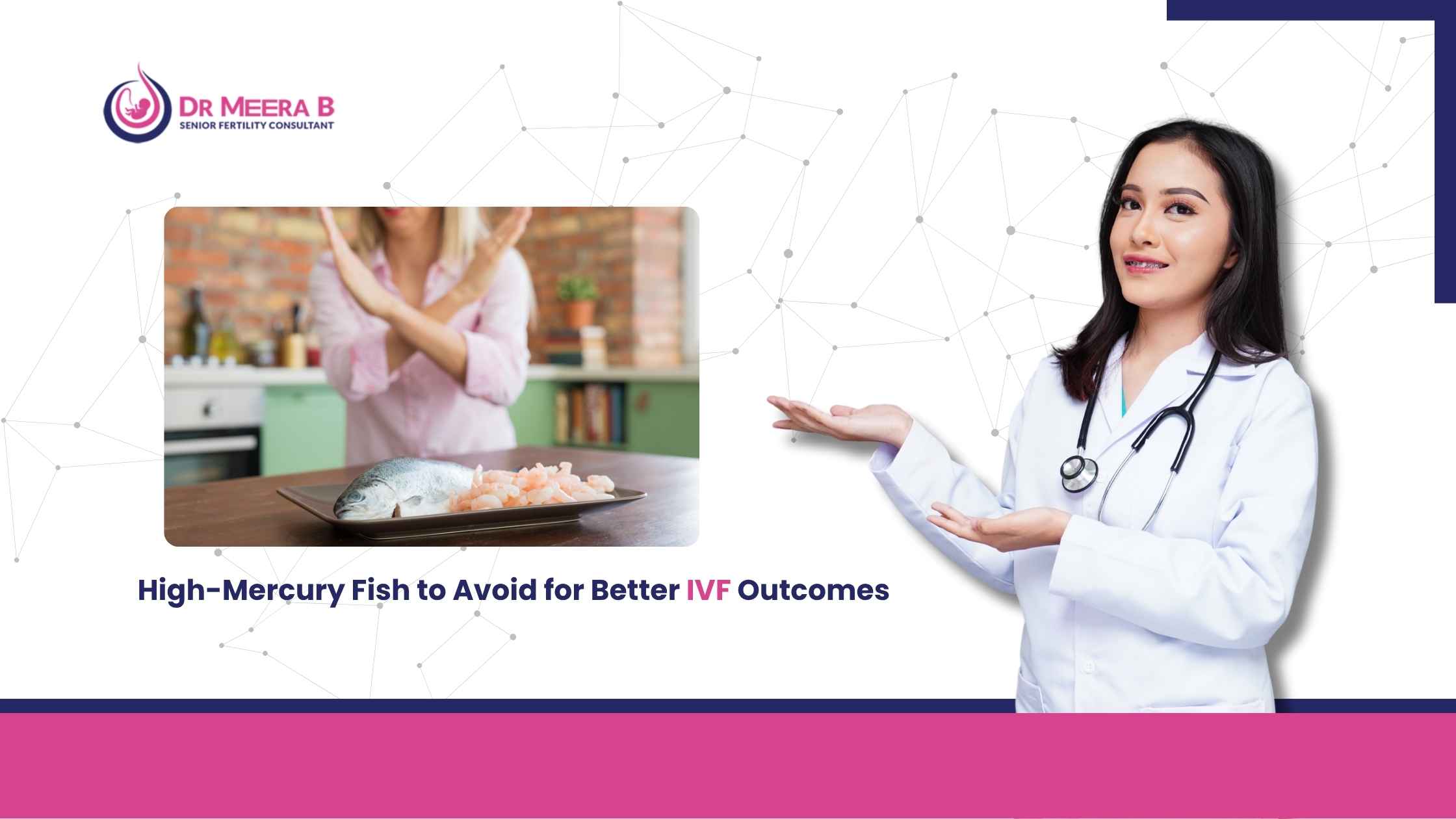Understanding Mercury And Fertility
Mercury and fertility have a complex relationship. Mercury is a heavy metal that can disrupt endocrine function, impair ovulation, and even cause chromosomal abnormalities in embryos. In men, it can negatively impact sperm motility and morphology. For women undergoing IVF, exposure to high mercury levels may reduce implantation success and increase miscarriage risk.High-Mercury Fish To Avoid During IVF
To support optimal reproductive health, it’s important to limit or eliminate certain fish high in mercury. Here’s a list of common IVF fish restrictions:- Shark
- King Mackerel
- Tilefish (from the Gulf of Mexico)
- Bigeye Tuna
- Marlin
- Swordfish
Safe Seafood For IVF
Safe seafood for IVF includes varieties that are low in mercury but rich in omega-3 fatty acids, which are beneficial for reproductive health. Dr. Meera B recommends:- Salmon (wild-caught preferred)
- Sardines
- Anchovies
- Trout
- Atlantic Mackerel (not King Mackerel)
- Catfish
- Tilapia
Low-Mercury Fish Options
Low-mercury fish options are safer alternatives for couples planning pregnancy or undergoing IVF. Consumption should still be moderated to 2–3 servings a week. Dr. Meera B ensures her patients understand portion control and safe cooking methods to preserve nutrients and minimize risks.Sushi During IVF: Is It Safe?
The concern about sushi during IVF is twofold — mercury content and risk of foodborne illnesses like listeria. Raw fish can harbor parasites and bacteria harmful to early pregnancy. Dr. Meera B advises avoiding raw seafood completely during IVF and opting for cooked sushi varieties made with low-mercury fish like salmon or shrimp (well-cooked).Pregnancy-Safe Fish Choices
Post-IVF, during early pregnancy, continuing to consume pregnancy-safe fish is important for fetal development. Omega-3 fatty acids aid in brain and eye development. Safe choices include salmon, sardines, and trout, which are low in mercury and high in nutrients. Dr. Meera B provides personalized dietary plans to her patients to support every stage of pregnancy.Fertility And Heavy Metals
Fertility and heavy metals are interlinked. Besides mercury, exposure to lead, cadmium, and arsenic can also impair reproductive function. Dr. Meera B advocates for comprehensive detoxification practices, including dietary adjustments, to minimize heavy metal exposure for couples trying to conceive.Why Mercury Exposure Matters More During IVF
During IVF, eggs are retrieved and fertilized outside the body, making them more sensitive to environmental toxins. Elevated mercury levels can compromise egg quality, embryo viability, and increase the risk of failed implantation or miscarriage. Dr. Meera B’s holistic approach ensures that patients are educated on every risk factor — including dietary heavy metal exposure.Additional Tips For Reducing Mercury Intake
- Always opt for wild-caught, sustainably sourced fish.
- Limit consumption of large predator fish to prevent bioaccumulation.
- Read seafood advisories specific to your region.
- Include a variety of proteins (plant-based, poultry, and low-mercury seafood) in your diet.
- Stay informed and consult with a fertility nutrition expert.


Comments are closed